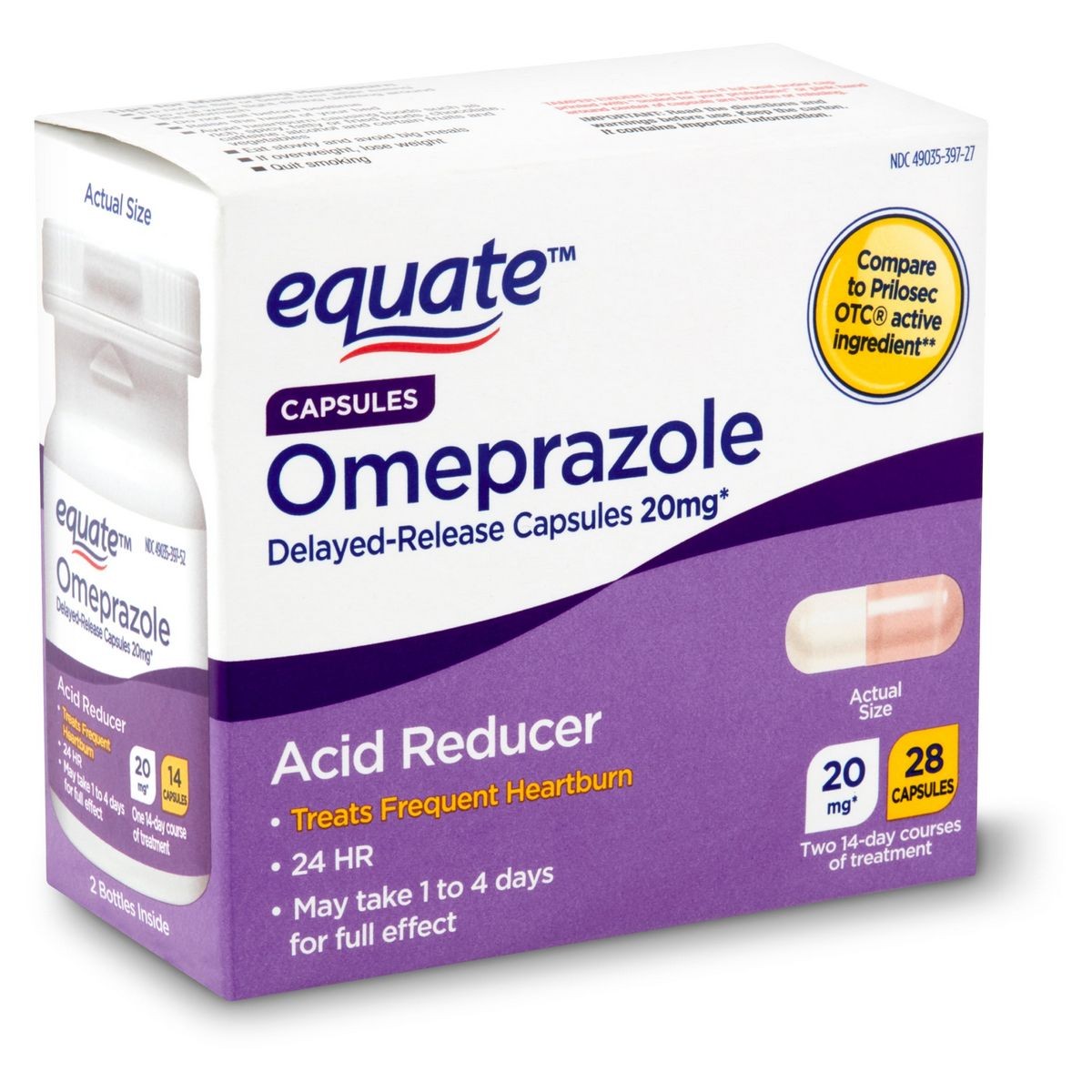
omeprazole delayed release tablet – oral
Medication Uses How To Use Side Effects Precautions Drug Interactions Overdose Notes Missed Dose Storage USES: Omeprazole is used to treat certain stomach and esophagus problems such as acid reflux and ulcers. It decreases stomach acid production to relieve symptoms like heartburn, difficulty swallowing, and cough. This medication helps heal acid damage, prevent ulcers, and may prevent esophageal cancer. Omeprazole is a type of drug called proton pump inhibitors (PPIs). If you are self-treating with this medication, over-the-counter omeprazole products are used to treat frequent heartburn (occurring 2 or more days a week). These products do not provide immediate relief and may take 1 to 4 days to take effect. Carefully read the package instructions before using. Check the ingredients on the label, as different products may have different ingredients. Taking the wrong product could be harmful. HOW TO USE: Read the Patient Information Leaflet before starting omeprazole. Take this medication orally, usually once daily before a meal. Follow the product package directions if self-treating. Dosage and length of treatment depend on your condition. Do not exceed the recommended dose. Do not crush, break, or chew the tablets. Swallow them whole with water. If needed, you can take antacids with omeprazole. If you are also taking sucralfate, take omeprazole at least 30 minutes before. Take this medication regularly at the same time each day. Continue taking it for the prescribed duration, even if you feel better. Do not use the over-the-counter product for more than 14 days without doctor’s approval. If your condition persists or worsens, or if you have any serious medical problems, seek medical help immediately.
SIDE EFFECTS: Some side effects may occur, such as headache or abdominal pain. If these effects persist or worsen, inform your doctor. Serious side effects are rare, but if you experience symptoms like fast/slow/irregular heartbeat or seizures, seek medical help. This medication may rarely cause a severe intestinal condition called Clostridium difficile-associated diarrhea. Do not use anti-diarrhea products or narcotic pain medications if you have symptoms like persistent diarrhea, abdominal pain/cramping, fever, or blood in stool. Allergic reactions to this drug are rare, but if you notice symptoms like rash, swelling, severe dizziness, or trouble breathing, seek medical help. This is not a complete list of side effects. If you experience other effects, contact your doctor. In the US, report side effects to FDA at 1-800-FDA-1088. In Canada, report side effects to Health Canada at 1-866-234-2345. PRECAUTIONS: Inform your doctor or pharmacist if you are allergic to omeprazole or similar drugs. This product may contain inactive ingredients that can cause allergic reactions or other problems. Discuss your medical history, especially if you have liver disease. Seek medical help if you have severe symptoms like chest pain, unexplained weight loss, trouble swallowing, or frequent chest pain. Proton pump inhibitors like omeprazole may increase the risk of bone fractures, especially in older adults. Talk to your doctor about preventing bone loss. Consult your doctor before using omeprazole during pregnancy or breastfeeding.
DRUG INTERACTIONS: Omeprazole may interact with other drugs, changing how they work or increasing your risk of side effects. Share a list of all medications, including prescription/nonprescription drugs and herbal products, with your doctor and pharmacist. Do not start, stop, or change the dosage of any medications without your doctor’s approval. Some products may require stomach acid to be properly absorbed, so omeprazole may affect how well they work. Some of these products include ampicillin, atazanavir, erlotinib, and certain antifungal drugs. Do not use medications containing esomeprazole while using omeprazole. This medication can interfere with certain laboratory tests, possibly causing false results. Make sure your healthcare providers are aware of your use of omeprazole. OVERDOSE: If overdose is suspected, seek immediate medical help. Symptoms may include confusion, abnormal sweating, blurred vision, and fast heartbeat. NOTES: Do not share this medication with others. If your doctor prescribes omeprazole for long-term use, you may need periodic medical tests to monitor your progress and check for side effects. Keep all medical appointments. MISSED DOSE: If you miss a dose, take it as soon as you remember. If it is close to the time for your next dose, skip the missed dose and resume your usual dosing schedule. Do not double the dose. STORAGE: Store at room temperature, away from light and moisture. Do not store in the bathroom. Keep all medications out of reach of children and pets. Dispose of expired or unused medication properly.
Report Problems to the Food and Drug Administration
To report negative side effects of prescription drugs, visit the FDA MedWatch website or call 1-800-FDA-1088.
This material is copyrighted by First Databank, Inc. Do not distribute without authorization.
CONDITIONS OF USE: This information is not a substitute for medical advice. Consult a healthcare professional before taking any drug or making changes to your treatment plan.


